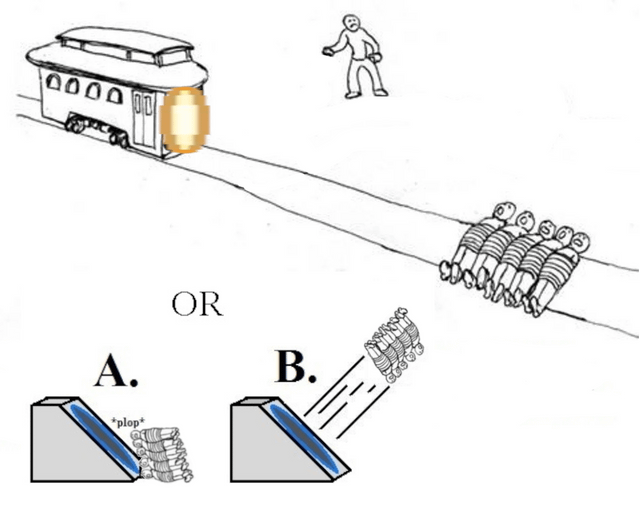this post was submitted on 18 Aug 2023
896 points (96.9% liked)
Memes
45135 readers
1484 users here now
Rules:
- Be civil and nice.
- Try not to excessively repost, as a rule of thumb, wait at least 2 months to do it if you have to.
founded 5 years ago
MODERATORS
you are viewing a single comment's thread
view the rest of the comments
view the rest of the comments

If that is so, the train or portal would have to lose its momentum for the transfer to happen otherwise you'd be generating more relative velocity after the portal. I can't imagine portals transfering monentum, only maintain it.
Think of it as a pole entering the portal, the end will have to exit at high speeds and so it will need to drag the rest of it out at that speed
That might be the crux of it.
If you replaced the people with a pole on a roller, you wouldn't expect the pole to get sucked into the portal or to roll towards the tram as it advanced, right?
That is what would happen if people were launched out of the other side of portal. The part of the pole that has been launched would drag the remainder of the pole with it.
But that wouldn't happen.
The pole would just lay there until the tram passed it by, so the answer must be A. There's no momentum added to the pole as the tram passes it by. The only thing that changed is the location of the pole.
You almost arrived at the correct answer. The problem is that would happen. More specifically we know that four fundamental interactions can pass through the portals, e.g. a thing that is whole before passing through portals is still whole after passing through them, though for any pair of particles, atoms, neutrons and protons etc. there was a moment in time where they were separated by the portal. If you imagine the portal moving towards the pole at some speed and in the middle of it suddenly stopping, the momentum of the part on the other side would slightly pull on it, and the pole would still be moving at a reduced speed. The momentum of the second part cannot disappear and will pull on the first part. The only other reasonable option is that the pole gets split, but that obviously is not the case. So B it is